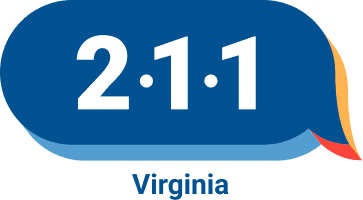Energy Assistance - Roanoke, Roanoke City Social Services
The Energy Assistance Program (EAP)consists of three components; Fuel Assistance (FA), Coolng Assistance (CA) and Emergency Crisis Assistance (CAP). The FA component is intended to provide supplemental assistance to offset the rising costs of heating expenses. The CAP component is intended to provide assistance with heating equipment needs and emergency fuel outages. Fuel Assistance opens the second Tuesday in October. The last day for applying is the second Friday in November. Main Qualifications: Have a heating need, meet the income and resource levels, include all persons living in the household, live in an eligible living arrangement and meet the citizenship requirements. Crisis Assistance applicants must meet the following: income level, resource level. Deposits: Opens the first working day in November. May only receive once per lifetime per fuel type. (Natural gas, electric and LP gas) Heating Equipment: Opens November 1st or the first working day in November for Replacement, purchase, or repair of primary heating source. Primary Fuel: Opens the first working day in January. It is for those that did not receive fuel assistance. Requires cut off notice for electric and gas. Almost out of fuel oil, wood, coal or island purchased kerosene. Cooling Assistance: Is offered during the beginning in mid-June. Must meet eligibility requirements
Physical Address
1510 Williamson Road Northeast, Roanoke, VA 24012
Voice
Fax
(540) 853-1141
Voice
Fax
(540) 853-1141
Website
Application process
Walk-ins and telephone referrals. Screen for eligibility and apply online at: commonhelp.virginia.gov or call the enterprise call center. For lost EBT cards call customer service at 1-866-281-2448. To arrange to pick up a card in person, please contact your worker directly.
Service area
Roanoke, VA
Agency info
Roanoke City Social Services
Benefit programs for income eligible individuals and families are as follows: *Supplemental Nutrition Assistance Program (SNAP) - to help with supplementing a household's food budget, to provide better nutrition in order to alleviate hunger and malnutrition *Temporary Assistance to Needy Families (TANF) - to provide financial assistance to needy families so that children under age 18 may be cared for in their own homes by one or both parents, or in the homes of relatives *General Relief (GR) - to provide maintenance or certain emergency assistance that cannot be provided through other means (typically through the federal programs). 1) monthly assistance to individuals holding custody of a non-related minor child (individuals in need of assistance for children related to them must apply for TANF, not GR); and 2) a vendor payment to a funeral home for cremation for those who are deceased with no means of payment of burial expenses. *Medicaid *Auxiliary Grant Program (AG) - provides income supplements to recipients of Supplemental Security Income (SSI) and certain other aged, blind, or disabled individuals residing in a licensed assisted living facility (ALF) or an approved adult foster care home (AFCH), licensed by the state Department of Social Services. *Family Access to Medical Insurance Security (FAMIS) - to meet the health care needs of Virginia's uninsured children between the ages of 0 through 18 years, in working families that earn too much to qualify for Medicaid, but not enough to qualify for private health insurance. *Virginia Initiative for Employment not Welfare (VIEW) - providing employment, education, and training opportunities to recipients of Temporary Assistance to Needy Families (TANF) in attaining the goal of self-sufficiency. *Refugee Assistance - provides the following benefits and services, in addition to the typical public at large programs, to the refugee population in Virginia: culturally sensitive child welfare services to refugee unaccompanied minors; refugee cash and medical transitional assistance to eligible refugees and their families; refugee social services; Domestic Health Assessment; targeted assistance, in two federally designated areas of the state, for refugees who are particularly hard to serve and may need special assistance in order to achieve self-sufficiency; and specialized services implemented through discretionary programs targeted to address critical unmet needs in refugee communities (e.g. the Refugee Elderly Assistance Program [REAP], designed to meet the special needs of refugees who are age 60 or older and who may have a more difficult time becoming self-sufficient). *Emergency Assistance - provide help to families with children when a fire or natural disaster has occurred and they have no means to provide for emergency shelter and replacement of basic household needs. *Emergency Assistance Program (EA) - assists low-income households in meeting their immediate home energy needs. The Energy Assistance Program consists of three basic components: Fuel Assistance, Crisis Assistance, Cooling Assistance.
